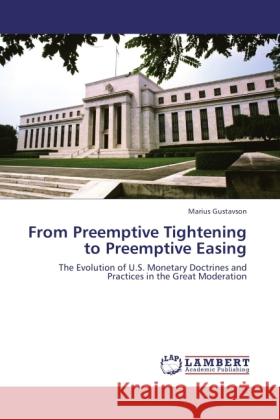From Preemptive Tightening to Preemptive Easing » książka
From Preemptive Tightening to Preemptive Easing
ISBN-13: 9783846539033 / Angielski / Miękka / 184 str.
This book explores the evolution of U.S. monetary doctrines and practices during the Great Moderation (c.1985-2005). In the first half of this period, policy was mainly concerned with the threat of inflation. The wish to build reputational capital as credible inflation fighters was high on the list of priorities. As the Great Moderation became entrenched in the minds of policymakers and economists, the gains were perceived as more permanently realized. At the same time, new challenges arose both within the domestic economy and the global financial system. The Federal Reserve under the leadership of Alan Greenspan (1987-2006) developed an approach to monetary policy based on the notions of preemption and risk management. The main thesis is that policy moved from a bias toward preemptive tightening to fully contain inflation, to an approach characterized by preemptive easing when perceived downside risks appear, related to financial fallouts and the threat of deflation.











